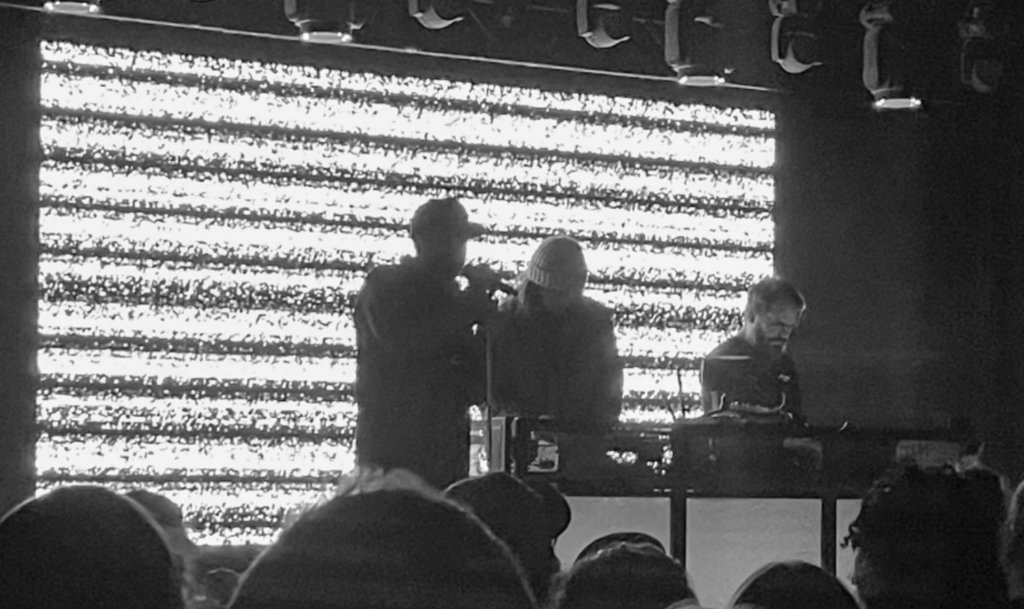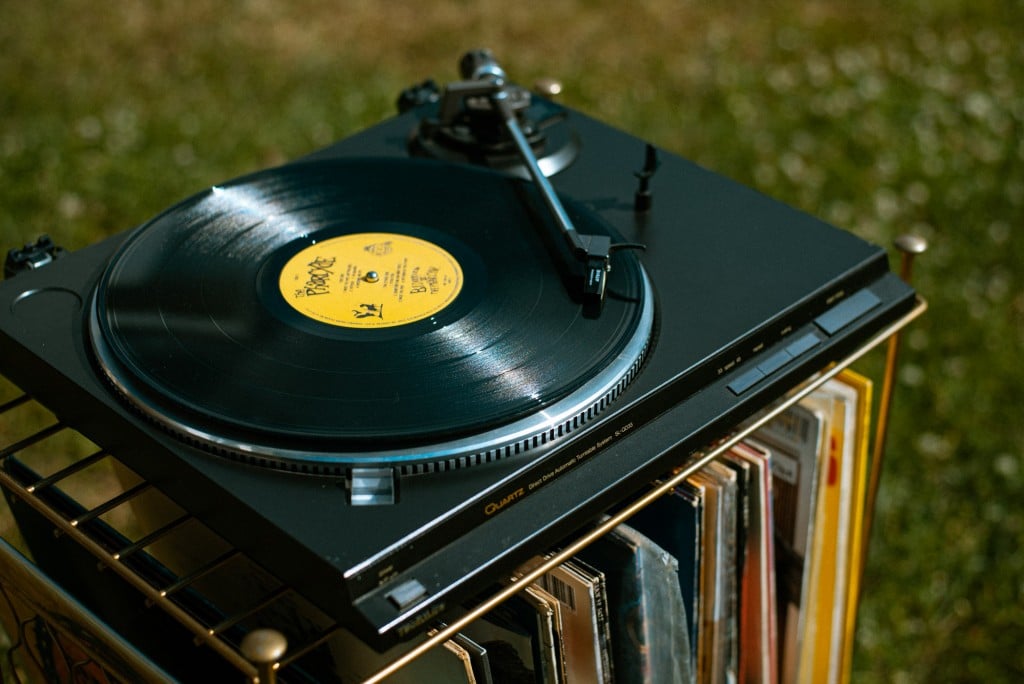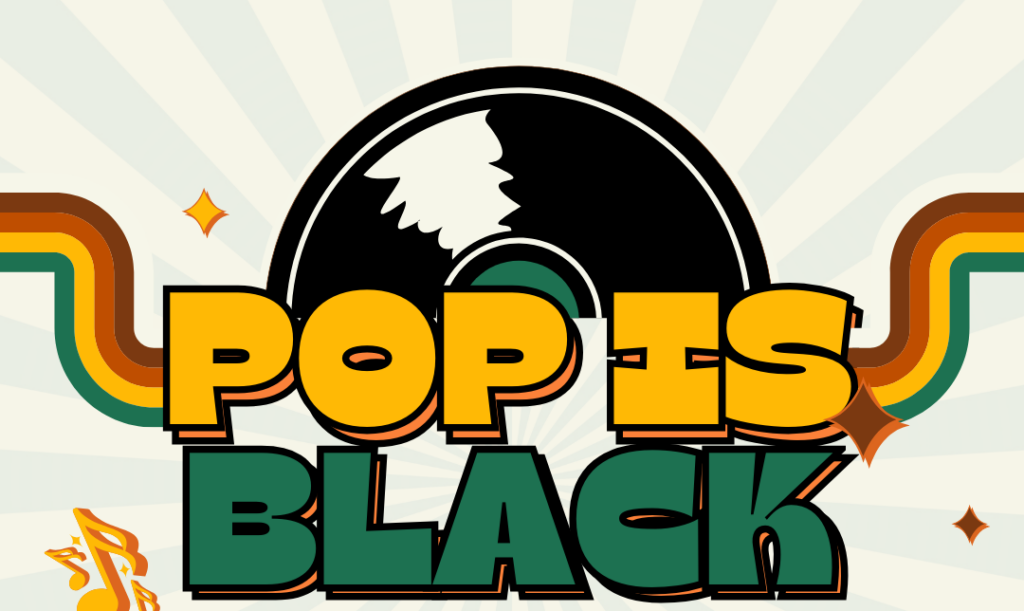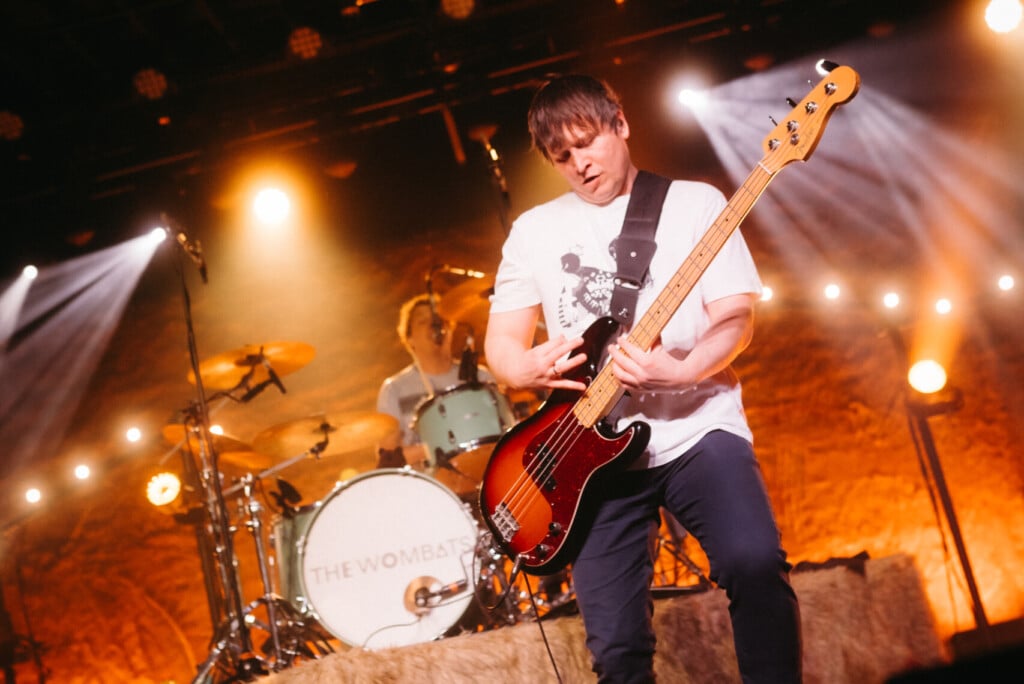No Skips: Browsing through Louisiana-based Groove Krewe’s new EP Blues From The Bayou
In our series No Skips, we sit down with an artist or band and go track by track through their latest release. For some of us, the banter in a concert where a song gets explained is our favorite thing in the world, and we’d just like to keep living in that. Every song has a story, and these are those stories in the order you’ll encounter them on the record.
The Groove Krewe, a Southern Louisiana-based recording group, recently released their ep, Blues From The Bayou, on Aug. 1, featuring 2011 Guitar Center “King of the Blues” winner Jonathon ‘Boogie’ Long. Long won the competition when he was 22, beating out about 5,000 other guitarists.
Led by Rex Pearce, Nelson Blanchard, and Dale Murray, the Groove Krewe dropped their first official album, Run to Daylight, featuring Nick Daniels III, in May of 2022. The title song reached number one on the Roots Music Report Top 50 Soul Blues Chart and was played throughout the nation, as well as internationally.
Together, the conjunction of unique artists used a wide array of talent and skill to help sustain a genre that has gradually dwindled in favoritism over recent years. With their first album being more R&B and soul-oriented, the group has returned to conventional blues mechanics with their latest project.
Contributing musicians to this record are Rex Pearce, Nelson Blanchard, Dale Murray, Jonathon Boogie Long, Eddie Bayers, David Peters, David Hyde, Leon Medica, Elaine Foster, and Tony Haselden.
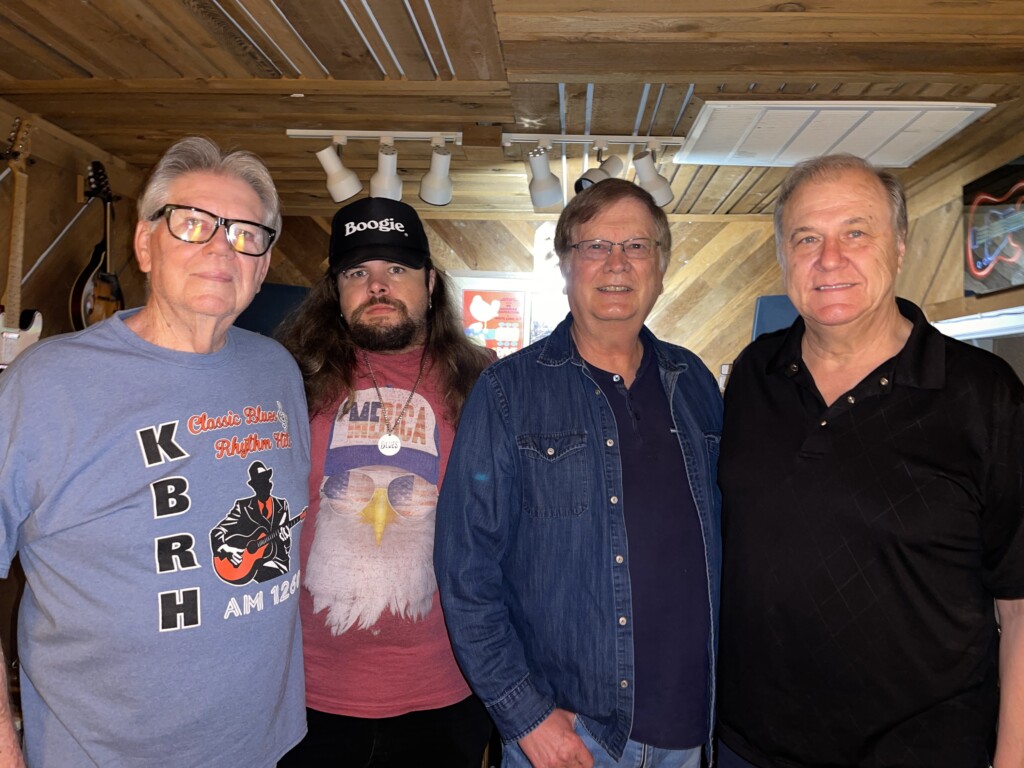
Left to Right, Dale Murray, Jonathon Boogie Long, Rex Pearce, Nelson Blanchard. // Courtesy of Rex Pearce
The Pitch: Can you tell me about how the band originated?
Rex Pearce: It all started in the 1980s really. I was working with LeRoux in the recording studio in Bogalusa, Louisiana. LeRoux was on Capitol Records, then RCA Records, they were a rock and roll band, best known for “New Orleans Ladies.” I was in the studio with those guys when I was in my early thirties and I was the producer. When I was eighteen, I got a publishing deal in Los Angeles. From there, my publisher got me started in production work, so I had a little label and my publisher out in LA was trying to get a record deal for a guy that I was putting on my label. LeRoux was a studio group, so that’s how it all got started. I got to know LeRoux and I learned a lot about production with LeRoux.
Fast forward in 2010, Leon Medica who was the bass player heard what we had done way back when. We never got a record deal, but he loved the music so he said let’s release it. Hence, Nelson Blanchard comes in the picture. Nelson is now a member of LeRoux and it’s been that way since ‘97. He played keyboard on two songs to finish that record. So we had LeRoux The Session Years, which is a record that came out featuring Carl Michaels, that was my guy.
From 2010, I kept coming to Nelson’s studio so we started doing things together. I guess about two and a half, three years ago, we had a song called “That’s New Orleans” that I wrote with my friend Dale Murray who’s co-producer on this record and the last record. That’s how the Groove Krewe started.
How did you guys get connected with Jonathon Boogie Long?
Pearce: We ended up doing ten songs and it was called the Groove Krewe featuring Nick Daniels III. Nick Daniels III is currently a member of a New Orleans group called Dumpstaphunk. Dumpstaphunk is Ivan Neville’s group and is really well known all over the world, frankly. It sounded so great and one of my friends, David Farrell, got involved and I asked David “I need to find a great singer for our new record”. So he hooked me up with Nick, and Nelson helped me put the band together. It’s a recording group and it’s kind of like The Wrecking Crew. That was the theory, we’re gonna do a New Orleans type Wrecking Crew.
Anyway, when we did that Nick Daniels record, we tried out a bunch of guitar players for our single from the album called, “Run To Daylight,” and nobody sounded good. But anyway, Dale Murray said “why don’t we get Jonathon Boogie Long”, so Dale hooked up with Jonathon. Boogie came in and I was like wow. I mean I have to say, he made my day. We decided our next record was gonna be less R&B and more blues, so we put together a bunch of songs, recorded them with the Groove Krewe. And so that’s how it all ended up. We got a great record, we got a great sound, and we got a great guy here to promote.
Jonathon Boogie Long: I think it’s important to understand that the Groove Krewe is a collective of amazing studio musicians. David Hyde records songs that are written by Rex, Dale, and Nelson.
As a style of music that is not very frequently listened to by the younger generation, arrangements like Blues From the Bayou keep the genre alive. Is that something that motivates you guys to continue to produce blues?
Pearce: Yeah, I mean that’s the roots. I’ve always tended to like blues music better than maybe pop or some of the other stuff. That’s the roots right there. I know Boogie, he’s a blues aficionado, what do you think?
Long: It’s all about keeping the blues alive and music alive. I think the more authentic you can keep it, the more it speaks to the roots, ya know. I record a lot of blues rock and a lot of different stuff, but this was like the bluesiest project that I’ve been a part of as far as just being more roots oriented in a long time. I think that this would fit in a traditional blues category and they need more traditional blues.
The first track on the ep is a very upbeat confession of love. What was your intention beginning the ep with this song? Was it to grasp the listener’s attention with it being so lively and upbeat?
Pearce: Nelson and I wrote this. It’s one of the last ones that we did. We’re very careful about the tempo when we do a song, so I’ll come into the studio, Nelson and I work on the drumbeat, and then we’ll pick a tempo. Dale’s always here for that. He’s really good at getting things into groove. We did that with the idea that we would have something that would get your attention right off the bat. That song actually does it.
The second song, “Lightnin’ Done Struck Again,” reminds me of tracks such as “Not My Cross to Bear” and “Whipping Post” by the Allman Brothers. How have some of the older, historic blues bands have influenced your music, and what was the motive behind bringing a more slower, sad song behind the lively first track?
Pearce: The three of us wrote that song. I wrote it with Dale Murray and Nelson Blanchard. We just came to the studio one day and wrote it basically. We set our music the way the three of us wanted it. Me personally, my motivation was a B.B. King song, I like The Thrill is Gone in minor key. I just wanted something to sound fresher than that.
Blanchard: You take the basic pattern of a lot of blues songs, which is down and out ya know. If it weren’t for bad luck, there’s no luck at all. So we just thought of scenarios where people would be down and out and struggling. Listen, a lot of people are. We just tried our best to kinda put it in a little bit different wording, and a little more clever artistry, instead of using a bunch of cliches ya know?
Does the double entendre behind “Dangerous Curves” have a specific meaning to you guys and to the group?
Pearce: *Chuckles* I had to laugh because to me those lyrics are funny, but I think they’re really well written because of the double entendre. If you listen to every word, there’s a word that ties in almost everywhere. Those original lyrics were written by me and a guy named Terry Duncan in Nashville. Now, the music we wrote here together, Nelson and I did. And Nelson also helped me change some of the lyrics for the better.
Blanchard: I was thinking we were just trying to mask it so that in case our wives listened to the track, they wouldn’t know what we’re talking about. They would pick the curvy road, ya know? Actually our wives aren’t that in the dark. But again, just using wording and patterns. A little different than you normally might hear in a blues song. We were just trying to be cute, ya know what I mean? Trying to put a little bit of sassiness in there and be a little clever.
Pearce: As far as the music goes, I’ll tell you what happened on that. I really like Muscle Shoals R&B, but I also like this old record by Smith called “Baby it’s You” way back in the ‘70s. The girl that sang it was like Janis Joplin and it had a specific feel to it on the up. So I brought both of those to the studio. The R&B tune we listened to was “Mustang Sally” and then we listened to “Baby it’s You” and I said “Nelson, help me.” So Nelson and I were working on the music and we came up with a tempo and it was slower because you gotta get all those words in there somehow. And the groove, ya know a lot of R&B has a groove to it that’s not always fast. We kept doing what we liked and one thing kept leading to another. I played maybe six guitar tracks on that song and they were all in the background.
Can you talk about the coercion between the background vocals being soft and uplifting with Jonathon’s raspy voice driving the song?
Long: Look, they sent me lyric sheets about two days before I came to the studio. A lot of times the background voices were there already. I just came in and followed their direction. They had a vision for what they wanted. The hardest part is being open minded or being stubborn. I come in and fight with myself, because it’s really about trying to nail their vision through their song. I’m the featured artist but they know what they want it to come across like. So you gotta come in and try to be professional and listen to the direction that they wanted to go in. And we really just took it section by section and make sure to nail annunciations and hold this word out this long, a little bit of that kind of stuff. Ya know, production, it was produced.
“Empty Pocket Blues” is something that anyone can relate to whether you like the blues or not and is a common theme in traditional blues songs. Is this something that the band had in mind when arranging this song?
Pearce: The deal is, this was gonna be a blues record. I have to say, we had a lot of fun writing that song. It was a back and forth kind of thing. We wrote it in two or three hours. I’m never trying to write a commercial song. I’m trying to write what I like. If other people like it, I like that.
Blanchard: That was one of the more fun songs to write. We had probably twice as many ideas that went out the window than on the record. But we came to an agreement on what we had and we had a lot of fun with it. I agree with your assessment that ya know it’s something everybody can relate to, but again we tried to put it in a lyric that was a little bit different than what you normally would have perhaps heard. We tried to again not stick to cliches and put a little twist on it.
Moving on to the last track, “Eclipsed by Love” is a bit different from the first four tracks in its own unique way and I saw that it was originally released by Floyd Brown in 2015.
Pearce: I was the producer on that. Dale and I did that one. See this is the thing. Floyd isn’t a blues singer. Floyd’s more of a country singer, he’s a great singer. Also, I knew Boogie kinda leaned more to the newer kind of blues with a more rock feel. So I was hoping he would like that better, it would fit his mentality a little better than maybe some more traditional songs we did before that song.
Speaking on that, Jonathan’s raspy, conventional blues voice alongside the horns make for a perfect combination on this outro track. Can you take me through the thought process behind having Jonathon getting on the vocals in contrast to Floyd Brown?
Pearce: I was there for the original in 2010 and it ended up on a LeRoux record. In 2015, it ended up on Floyd Brown’s record. 2023 it’s now on this record. We needed an extra song for the LeRoux record and LeRoux was a really great rock and roll band. They play rock music really well. Tony Haselden influenced me a lot with lyrics because I’ve known him since the early ‘80s. So anyway we got in the studio and Leon Medica, the bass player, spent the night at my house before the session. So I got my guitar out and he got his bass out, and he has really long fingers. And that bass part, he’s stretching and I don’t know if other bass players can play it quite the way he did that. He’s playing bass all the way through that thing, the lick. And Nelson was on clavichord and organ and Nelson played the lick. I taught Tony Haselden, the guitar player, the lick. I mean I could’ve played on that record if I wanted to, but I didn’t want to because it’s a LeRoux record. So that’s how it all came to be.
It really made me feel good when after we did “Eclipsed by Love,” Boogie told me, “That’s more up my alley. I felt this.” That made me feel good.
Long: I could tell it was a different vibe. I grew up playing with a guy named Big Luther Kent, and it wasn’t him on vocals, it was Floyd Brown, but it still had a Luther Kent vibe to me. Just the presence, the overall vibe of it reminded me of what I grew up playing. I started playing with Luther when I was 17 with a 12-piece big band and being around those guys. It was a cool song, it’s a cool vibe. It’s probably my favorite tune on it. That’s just because it’s different. I like hip, kind of different stuff.
Blanchard: The band I’m with, LeRoux, we were doing a show with Big Luther Kent. They were playing it on a different stage. We did our set in downtown Baton Rouge and I could hear them in the distance. I could hear the guitar player and I’m like who in the heck is that. I had to go over there and find out who was playing guitar. So I marched on over there and here’s this kid playing these fantastic licks and stuff. I introduced myself and he said “I’m Boogie Long.” Said, “My dude you got a future ahead of you.”
Long: I actually remember that.
What were some of your guys’ favorite memories when recording the record?
Blanchard: I would say writing stuff, ya know. To me that was the most fun part. Of course, like Rex, I enjoyed the process of recording, but I would say writing some of these tunes.
Long: I thought it was funny doing the vocal tracks because I would get frustrated and discouraged. I’m like a perfectionist in some ways, so I’ll listen to it and get all prepared. Then I come and I don’t nail it right away and it’s like we gotta really get into the nitty gritty producing it. I would just get so frustrated, Nelson would be like “You’re not quite annunciating it right.” “I am annunciating it right.” So that makes me go back and laugh after going back and looking at it. That’s why I said you just gotta not be stubborn and listen, ya know.
Pearce: I remember when Elaine Foster was here doing background vocals for “Dangerous Curves” and “Empty Pocket Blues.” And she nailed everything right off the bat. She recorded more than one track obviously. When we put Nelson’s vocals in with hers, man I had a smile from ear to ear. I told her, “You just made my day.” And I gotta say some of my finest moments were hearing Boogie play guitar too. I really enjoyed it. I’m a guitarist, what can I say.
What is next for the Groove Krewe? Will Boogie be joining the band again for future projects?
Pearce: Well yes, I hope so. As far as playing live, we’re going to have a meeting after this call ends because we just found out that the album hit 22 on the big blues chart, in addition to the RMR [Roots Music Report]. Hopefully we’re gonna also hit a couple other charts here. This record ain’t by any ways finished yet. Boogie plays with a drummer and a bass player basically when he plays live. So we’re looking into the possibility of expanding the group so he can add our songs in addition. And Nelson would be playing with him on that.
As far as a record with the Groove Krewe featuring Jonathon, I haven’t ruled that out yet. I’m thinking if we do another record with Boogie, it will be his favorite kind of music and his songs that he writes. Maybe he’d let us write a couple with him. It depends on how good the record does, right now it looks pretty good.
This interview has been edited for clarity and length.

